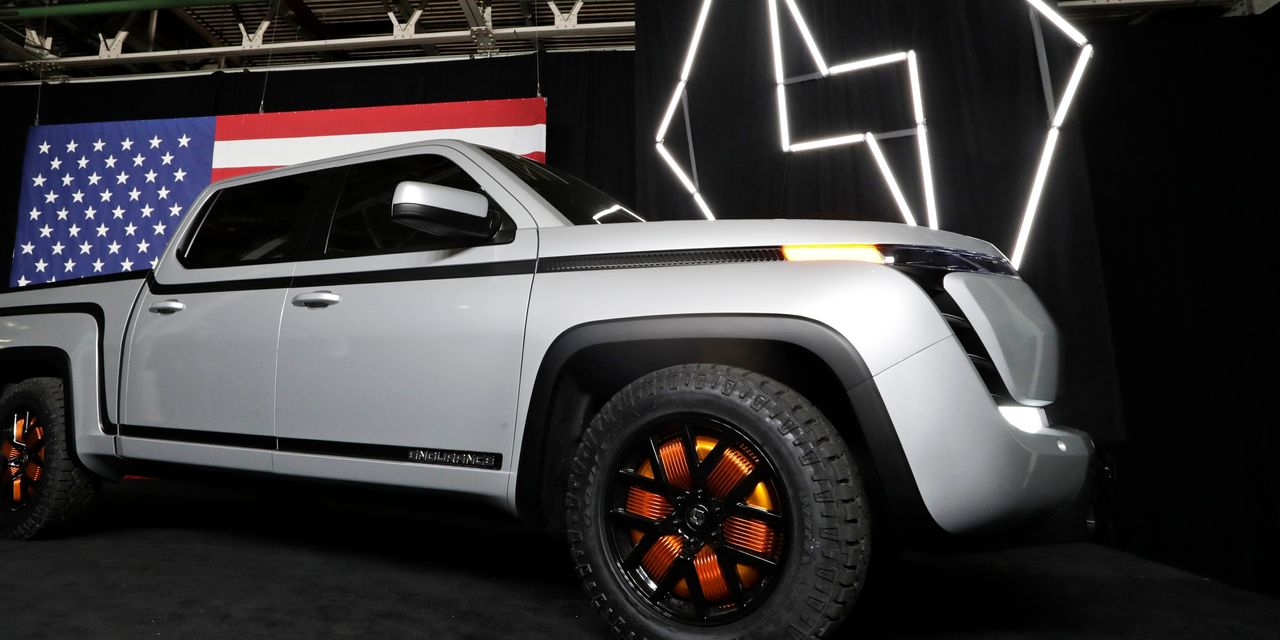Lordstown Motors
likely won’t be the only electric vehicle company to veer off the road before it has even started selling its key product. The startups that stand the best chance of meeting high investor expectations may be those focused on luxury, not utility.
The would-be truck maker, which went public via a merger with a special-purpose acquisition company last October, said Monday that
Steve Burns,
previously described as its founder, chairman and chief executive officer, was stepping down. So too is Chief Financial Officer
Julio Rodriguez.
This follows a rocky few months in which the company has warned of higher costs, insufficient capital and inaccurate disclosures as it tries to rush out an all-electric pickup truck this fall, ahead of the Detroit giants. Its shares fell 19% in morning trading to $9.40, below the SPAC’s $10 launch price.
Lordstown Motors is trying to breathe new life into a car factory abandoned by
General Motors
in Lordstown, Ohio, by getting to market early with the kind of utility vehicles that are typically bought by cost-focused fleet businesses. This is a promising road for EVs, which are still more expensive than comparable traditional vehicles upfront but come with the promise of lower running costs.
But the company’s challenges underline why competing on cost is hard for a startup to do, particularly amid rapid inflation in raw-material prices. The company was planning to source the frames for its truck, the Endurance, from a supplier. Then its potential partners either pulled back or raised their prices. Its response was to bring frame production in house, but that implies a jump in capital spending and the vehicle’s cost profile.
Meanwhile,
Ford,
which currently dominates the fleet business, has brought forward the launch date for an all-electric version of its bestselling F-150 pickup truck to next spring. Amid plenty of noise about not giving up market leadership, it said in May the new F-150 “Lightning” would start at around $40,000, which compares with $52,500 for Lordstown’s Endurance. This month, Ford unveiled an entry-level hybrid truck starting at under $20,000, the Maverick.
Among the advantages Detroit enjoys over newcomers are access to capital, experienced engineering and manufacturing teams and well-established supply chains for the many parts EVs share with traditional cars.
“They’re hiring executives to help them, but it’s a daunting challenge,” says Neal Ganguli, leader of
FTI Consulting’s
automotive and industrials business transformation group, of EV startups.
EV companies focused on wealthy tech-lovers may have the best chance of overcoming the obstacles and breaking into the market. This is the model set by the few success stories so far, such as
Tesla
and
NIO,
and which Lucid Motors best embodies among the new crop of startups. While efforts to beat Detroit at the mass-market cost game seem to be leading to a dead end, luxury prices just might give a few upstarts cover to find a technological edge.
Write to Stephen Wilmot at stephen.wilmot@wsj.com
Copyright ©2020 Dow Jones & Company, Inc. All Rights Reserved. 87990cbe856818d5eddac44c7b1cdeb8
Appeared in the June 15, 2021, print edition as ‘Lordstown Motors Appears To Be Running Into a Dead End.’













































